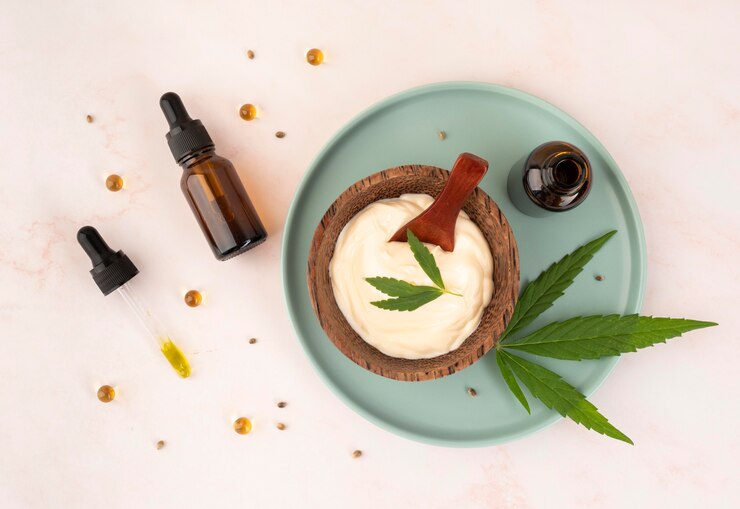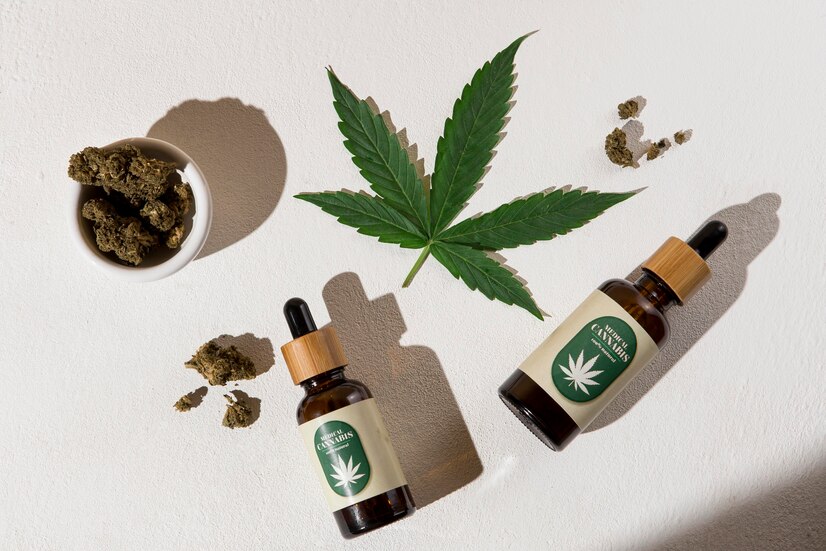Table of contents
As CBD continues to rise in popularity, more travelers are incorporating it into their routines to manage stress, sleep issues, pain, and overall wellness. But when you’re planning a trip—whether it’s a weekend getaway or an international adventure—you might wonder which type of CBD is best to bring and how to do so legally and safely. This guide dives into the different forms of CBD available and how to travel with them worry-free.
Why Travel with CBD?

CBD (cannabidiol), derived from hemp, is a non-intoxicating compound known for its calming and therapeutic properties. Many travelers rely on it for:
- Reducing travel-related anxiety
- Managing inflammation and chronic pain
- Supporting better sleep in new environments
- Relieving jet lag symptoms
However, knowing which different forms of CBD are most convenient, effective, and legally compliant is key to making your trip stress-free.
Different Forms of CBD You Can Travel With

Here’s a breakdown of the most common different forms of CBD, including their pros, cons, and travel-friendliness.
1. CBD Oils and Tinctures
Pros:
- Quick absorption
- Easy to adjust dosage
- Long shelf life
Cons:
- Subject to TSA liquid limits (3.4 oz max)
- May spill in transit
Travel Tip: Keep the bottle in its original packaging and pack it in a zip-top bag to avoid leaks.
2. CBD Gummies
Pros:
- Pre-measured dosage
- Discreet and portable
- Tasty and convenient
Cons:
- May melt in high temperatures
- Longer onset time
Travel Tip: Great for flying or long drives—store them in a cool, dry place.
3. CBD Capsules and Softgels
Pros:
- Easy to swallow
- No taste
- Great for routine users
Cons:
- Takes longer to feel effects
- Not as flexible in dosing
Travel Tip: Bring a labeled bottle and avoid mixing with other supplements to prevent confusion at checkpoints.
4. CBD Topicals (Creams, Balms, Roll-ons)
Pros:
- Targeted relief for sore muscles or skin
- Non-ingestible (less scrutiny at airports)
- Fast local action
Cons:
- Larger containers might exceed liquid restrictions
- Can be messy if not sealed properly
Travel Tip: Ideal for hiking, sightseeing, or long travel days when physical relief is needed.
5. CBD Vapes or Inhalers
Pros:
- Immediate effects
- Compact and portable
Cons:
- Not allowed on all airlines
- Heavily regulated in many countries and states
Travel Tip: Consider leaving this option at home unless you’re sure it’s allowed at your destination.
Legal Considerations When Traveling with CBD
Understanding local laws is just as important as choosing the right product. Though CBD is federally legal in the U.S. (if under 0.3% THC), some states and countries have restrictions or outright bans.
Key Rules:
- Domestic Flights (U.S.): TSA allows hemp-derived CBD with <0.3% THC.
- International Travel: Laws vary greatly. Some countries ban CBD entirely.
- Always Carry Documentation: Lab reports (COAs) and original packaging can be helpful if questioned.
Doing a quick check on CBD regulations at your destination before departure is a must.
Best Practices for Traveling with CBD
- Choose travel-friendly packaging.
- Check TSA and airline policies.
- Avoid questionable or homemade products.
- Store in a cool, secure space.
- Keep products in their original, clearly labeled packaging.
Being prepared will help you get the most from the different forms of CBD you choose to travel with.
FAQs About Traveling with Different Forms of CBD
Yes, in the U.S., as long as it’s hemp-derived with less than 0.3% THC and complies with TSA liquid rules.
CBD gummies or capsules are often the easiest—pre-dosed, non-liquid, and discreet.
Most U.S. hotels do not prohibit the use of CBD, especially topicals or edibles. Check with your hotel if unsure.
Possibly. CBD is still illegal in several countries. Always check local laws before international travel.
Usually not, especially for domestic flights, but having documentation (lab results or product labels) can be useful.
Final Thoughts
Traveling with CBD doesn’t have to be complicated. By understanding the different forms of CBD—from oils and gummies to capsules and topicals—you can choose the option that fits your lifestyle and destination. Remember, preparation is key: research legal requirements, pack smart, and prioritize safety to enjoy the benefits of CBD while you explore the world.
Whether you’re heading off on a business trip or a vacation, CBD can help you stay calm, comfortable, and centered. Just make sure your travel habits are as thoughtful as your wellness routine.





